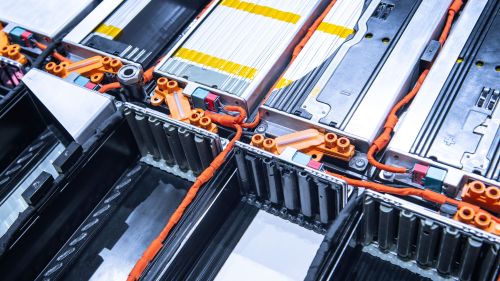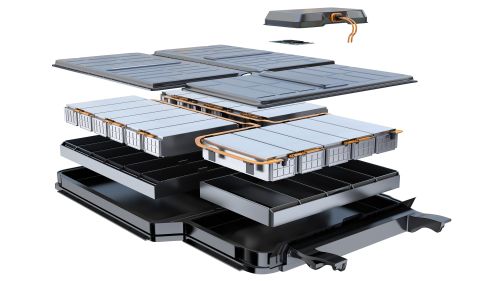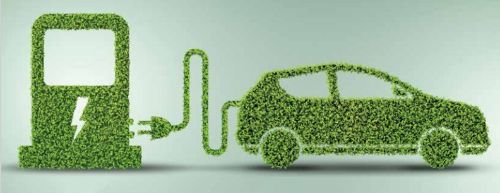- Automotive Industry
- Emobility
Emobility – The future is electric

The upcoming change from combustion engines to electric vehicles is necessary for the improved future of the planet. Emobility will play a crucial role in that transition, but it provides unique production challenges for automotive manufacturers.
The transition from gas powered vehicles to full electrification will take decades, and hybrid vehicles will be an important part of that transition. Manufacturers have to prepare for producing all of these vehicles, meaning their production lines have to become more flexible and easy to changeover as consumer trends evolve.
With Emobility solutions from ifm, you can continually create high quality products through this transition.
Improved machine availability
Plan and predict long-term maintenance to minimize the risk of unplanned downtimes. Keep plant maintenance in view at all times with systems for vibration analysis and precise digital data via IO-Link.
Improved product quality
With more production data available at more points of collection through connected sensors, automotive manufacturers can increase quality control steps throughout production. Identify bad parts before they move further down the production line.
Improved machine performance
By collecting more accurate sensor data in real-time, you are alerted immediately of any drift in the production process. This allows you to make corrections immediately and gain better insight into process parameters that produce high quality products.
Use cases
Electric motor manufacturing
Replacing combustion engines, the electric motor needs to be carefully constructed to meet high quality and safety standards in final vehicles.
Battery recycling
Recycling raw material components for use in new batteries helps reduce the overall emissions of EV production and helps to ensure that there are enough minerals to meet consumer demand. Automation will ensure this process is repeatable at scale.
Hydrogen and fuel cell manufacturing
Hydrogen fuel cells have high potential for transitioning commercial vehicles away from fossil fuels, as their weight makes electric motors a challenge. ifm solutions are often used in hydrogen and fuel cell manufacturing processes during quality checks at inspection stations.
Charging infrastructure
The future of electrication depends on a connected and distributed network of charging stations over long distances. ifm products are helping manufacturers create the EV fast-charging station infrastructure necessary to power the future of heavy duty electric vehicles and passenger cars.

Technologies
Connected sensors
Edge computing, artificial intelligence, and better cameras allow you to identify defective parts sooner in the production process. These enhanced error-proofing technologies are now available at competitive prices. Better optimize future processes using raw process values of temperature, pressure, and flow. You can trend historical records and gain more information to make real-time decisions.
IO-Link technology
With a true digital signal, you gain better insight into various process values from your sensors. You can see the changes in pressure, temperature, or flow during any step in production. Then, you can identify how it changes the final product. IO-Link provides the foundation for Industry 4.0 initiatives and the future of connected machines.
Robust software
Better software options provide real-time insights. You can make changes immediately instead of waiting for quality inspections further down the line. Sensor data used to limited for use in machine controls. Now, data can be sent to the cloud for further processing and analysis without interfering with machine controls on the plant floor.
Gain a competitive edge
As electric vehicles become the future of the automotive industry, using fixed production lines will be too expensive to adapt and maintain as technology progresses. Implementing flexible automation solutions from the beginning will allow manufacturers to act quickly as consumer demands evolve during this transition period. Partner with suppliers that are working with your future needs in mind.






